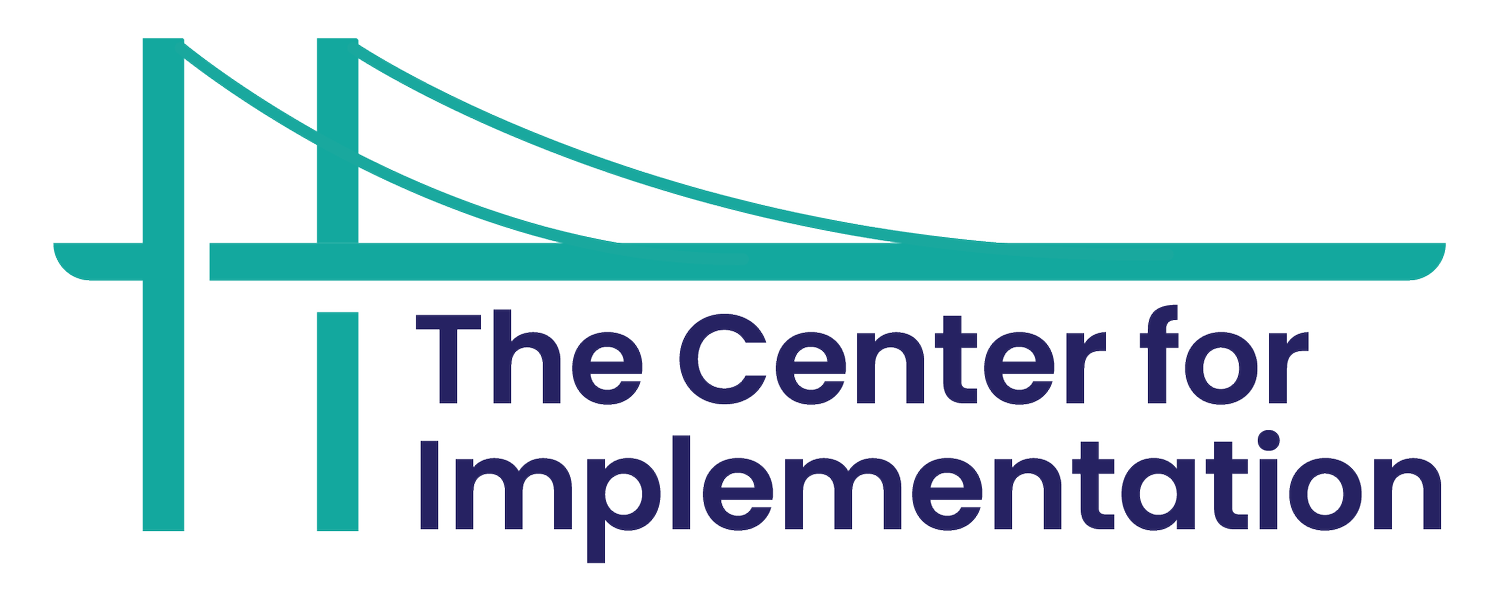Featured Resource: TeamSTEPPS
By Dr. Jonathan A. Caballero, Strategic Operations Advisor
4-min read
Implementation initiatives aiming to bring benefits to society have something in common, regardless of their area of knowledge and their goal. To be successful, they need the coordinated efforts of teams.
As implementation support professionals, we know that effective teamwork and clear communication are crucial for succeeding, but specific guidance on how to support our teams and organizations in this area can sometimes feel nebulous.
TeamSTEPPS (Team Strategies & Tools to Enhance Performance & Patient Safety) is an evidence-based framework to optimize team performance across the healthcare delivery system.
While it is focused on healthcare contexts and patient outcomes, it can be useful for implementation support professionals aiming to have more concrete guidance on how to improve communication and teamwork.
With this in mind, we will focus on the aspects that can be generalized and maximally useful for implementation support professionals across fields.
Evidence-based framework
TeamSTEPPS is based on the premise of having clearly defined teams where team members make use of four skills:
Communication – Process through which information can be exchanged among team members
Team Leadership – Ability to ensure that team actions are understood, plan changes are shared, and resources are accessible
Situation Monitoring – Continuous assessment of changes in situational elements, and their influence on planned actions and team functioning
Mutual Support – Anticipating team members’ needs and engaging in team support when needed.
A key idea is that, since they constitute skills, they can be taught and learned, which can lead to improving team effectiveness, and ultimately improve safety and effectiveness in patient care.
As you can see, these skills can be relevant and useful for your team, even if you are not working in a healthcare context (though certainly, some adaptations might be needed!).
To give you a head start, we will now quickly introduce not 1, but 2 websites that can be helpful for you and your team.
TeamSTEPPS website
The TeamSTEPPS website, developed by the Agency for Healthcare Research and Quality (AHRQ), offers a comprehensive set of resources that can be helpful for your team, including introductory guides, a self-paced curriculum, videos, and training opportunities.
Its recommended approach is for people to start by reading their “Welcome Guides”, which are tailored to different roles in healthcare contexts, such as front-line providers, administrators, and even patients & family caregivers, among others.
After that, their self-paced curriculum offers an introduction and 4 modules focused on the skills mentioned above (communication, team leadership, situation monitoring, and mutual support). It also includes a section providing pointers and recommendations in case you are interested in implementing concepts or tools from TeamSTEPPS in your organization (something we are sure you will appreciate!).
The self-paced modules are offered in a web version and include theoretical concepts, tools, and pointers on how to teach the content to others, if you are interested in doing so. Other sections of the website also provide access to additional training videos, measurement tools, and a pocket guide, among many other resources.
The AHRQ is offering virtual training at no charge until November 2024 for teams based in the U.S., so make sure to check this out in case you are interested.
The TeamSTEPPS Canada Essentials Course
Developed by Healthcare Excellence Canada, this course offers a short, online, self-paced training opportunity based on TeamSTEPPS that can be completed in about 40 minutes.
The course is offered in English and French and combines examples, simulations, and short quizzes. It introduces the evidence-based framework in 5 modules: an introductory one focused on the concepts of teams and teamwork and one for each of the key skills in the TeamSTEPPS framework.
Here is a summary of what you can expect to learn in each module.
Team Structure – What is a team, how to define teamwork, and critically, why to consider and include beneficiaries as much as possible as part of the team.
Communication – Frameworks for ensuring to communicate a clear plan, plan changes, conflict resolution, and assessing the teamwork effectiveness.
Leadership – Actions needed when acting as a team leader, either formally, or when called upon by the situation.
Situation Monitoring – Individual skills for being aware of the situation in professional environments and to look for potential changes, and how these skills relate to shared mental models and determine team outcomes through, you guessed it, communication!
Mutual Support – Strategies and approaches to offer and request help, and to offer and receive feedback.
The course’s website also offers a discussion guide and a slide deck that you can adapt to introduce the content and promote conversations.
Thinking about your own context
On both websites, you will note that the examples and content are tailored to healthcare environments. However, the concepts are likely to be useful in many different contexts.
If you are not working in a healthcare environment, we invite you to reflect on which aspects of the framework could be relevant for you, and how they could be adapted and used to support your team. Spoiler alert: you are likely to find the recommendations on how to structure communications, feedback, and strategies to offer and receive support quite useful.
If you are working in a healthcare environment, you may find that many of the examples on both web pages resemble your day-to-day work, and the additional resources offered on both web pages could come in handy if you are interested in discussing the framework with your team or if you are considering to implement it.
This article was featured in our monthly Implementation in Action bulletin! Want to receive our next issue? Subscribe here.


